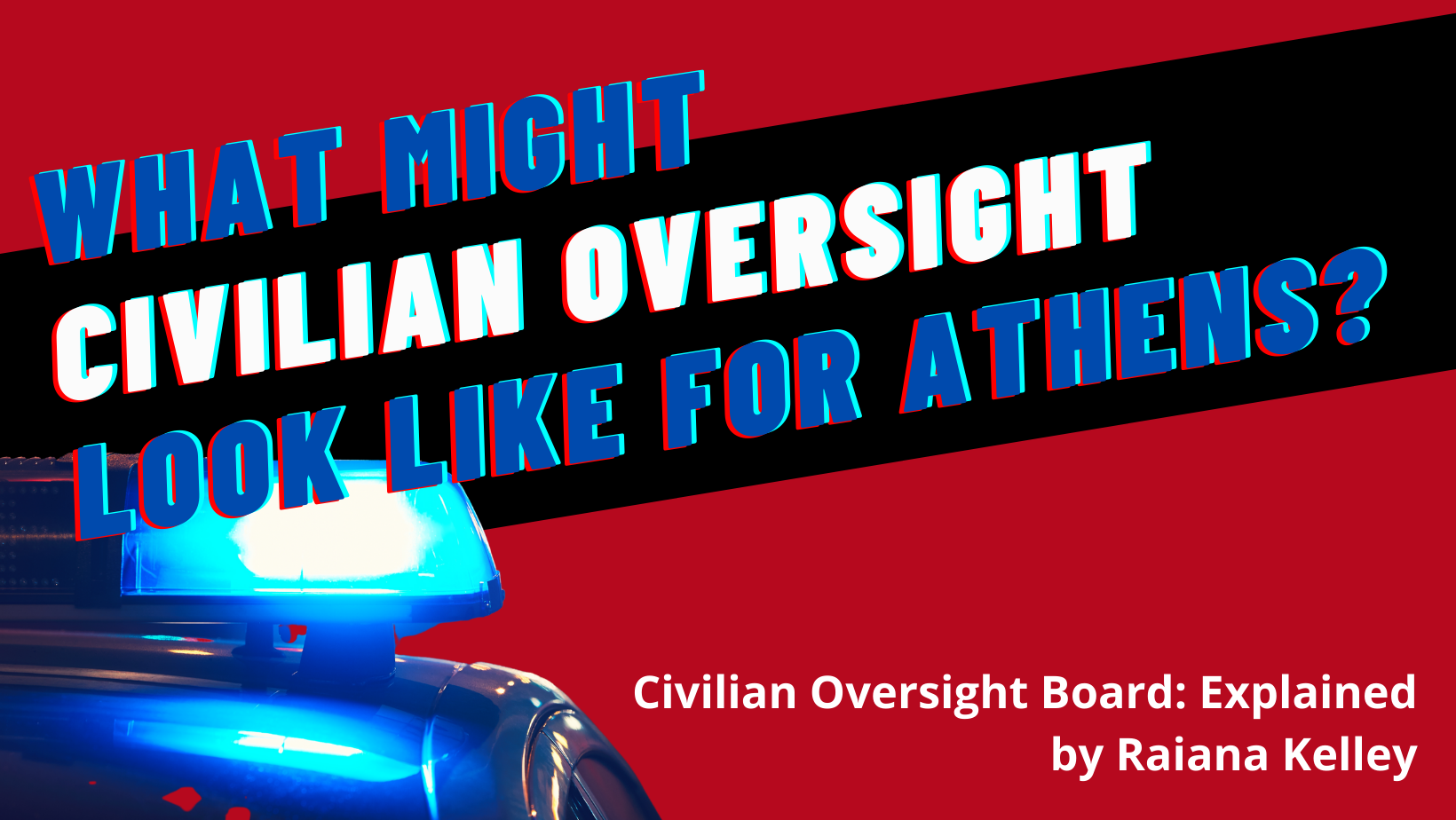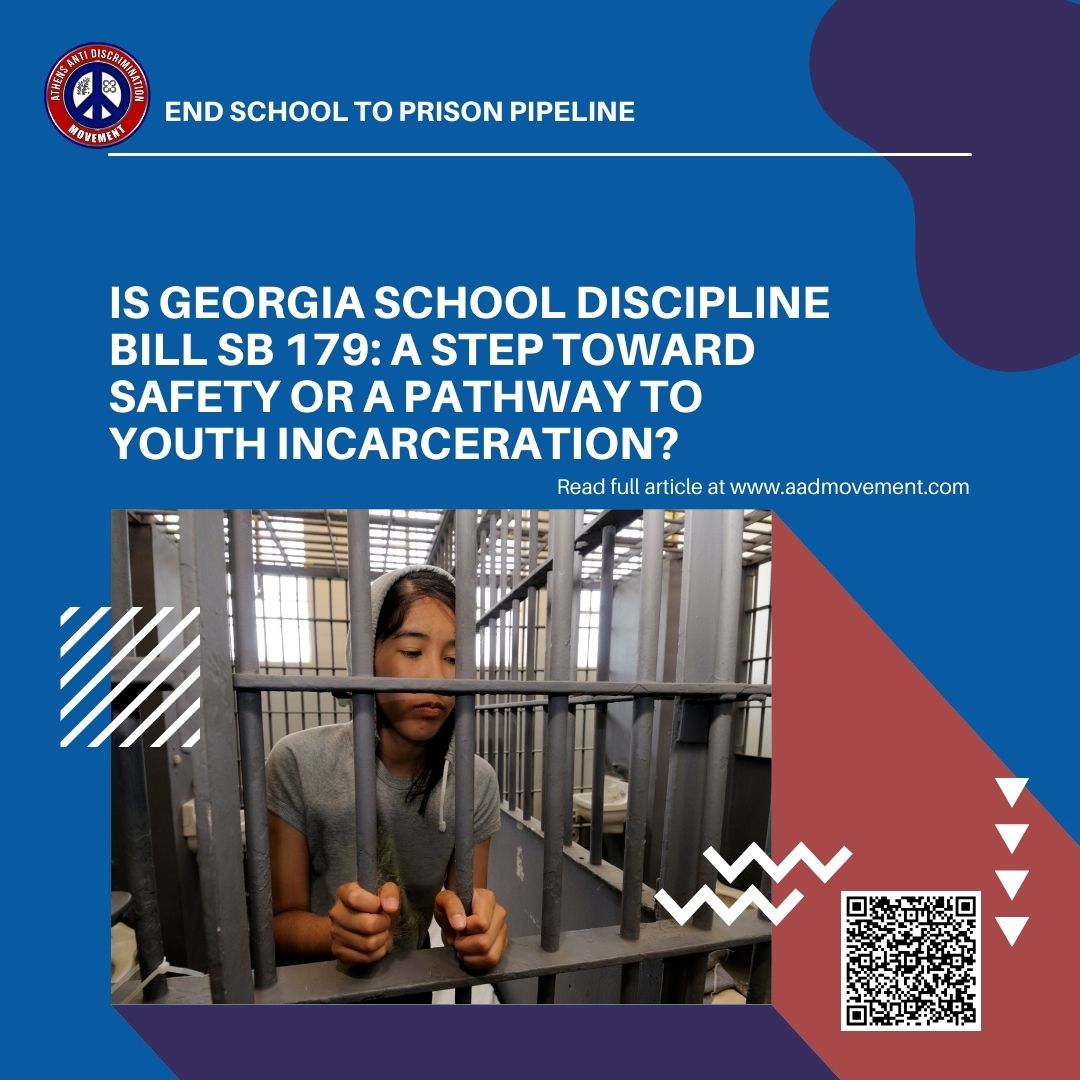Written by Raiana Kelly
After two well-publicized incidents involving the Athens-Clarke County Police Department (ACCPD) in 2018, Mayor Girtz established a Police Advisory Task Force to evaluate and make recommendations to improve the relationship between the ACCPD and the Athens community. This Task Force is a diverse group of individuals from different backgrounds that hope to address and mend the damaged relationship between marginalized community members and our police department.
The Task Force was formed in early 2020 and made their recommendations to the ACC government in February 2020. However, there have been negative reactions to the recommendations and they have yet to be implemented. The Athens Anti-Discrimination Movement (AADM) supports these recommendations and the formation of a Civilian Oversight Office, and our goal is to clear up any remaining confusion. The following is an outline of the recommendations made by the Task Force and the benefits a Civilian Oversight Office would bring to the Athens community.
What is a Civilian Oversight & Why is it Necessary?
A Civilian Oversight Office would include a board made up of diverse volunteers that are directly involved in citizen complaints and are tasked with making recommendations to improve law enforcement accountability. Their goal is not to criticize the police but to improve the relationship between the community and the police force through consistent accountability and transparency.
In Athens and around the country, there is a lack of trust in the police; citizens do not believe that police are fairly investigating themselves. By offering a fair and impartial review of complaints and controversial incidents, a Civilian Oversight Office would be able to improve the quality of policing. A Civilian Oversight Office would include a monitor and a review board responsible for collecting and reviewing police activity and data, reviewing policies and procedures, and making recommendations for improvements. A Civilian Oversight Office will provide direct feedback and recognize and affirm good policing.
Benefits of a Civilian Police Oversight Office
- Citizens would have a way to voice concerns outside of a law enforcement agency.
- Offers an opportunity for communication between the community and law enforcement, which will ultimately improve relationships and build trust.
- A reduction of public concern about high profile incidents.
- Will increase citizen understanding of law enforcement policies and practices.
- The police or sheriff’s department are held accountable for an officer’s actions.
- Reassurance for the community knowing that discipline is imposed when appropriate and there is transparency in the disciplinary process.
- Complainants will feel validated when their allegations are heard and confirmed.
Review of Recommendations
With the professional guidance of the National Association for Civilian Oversight and Law Enforcement (NACOLE), the Task Force recommended that the Athens government adopt a hybrid model and shared this collaborative model with the Government Operations Committee (GOC). This hybrid model includes an auditor/monitor and a citizen review board, outlined below.
The Role of the Monitor
The auditor/monitor is an individual with the knowledge, skills, and experience needed to collect, organize, and analyze data. This individual would be a paid employee of ACC and would manage daily operations including the review of police records, policies, and procedures. They would observe and, as appropriate, participate in police investigations and draft recommendations and reports. These reports and recommendations would then be reviewed by the board.
The Role of the Citizen Review Board
The citizen review board would play an important role in giving a voice to the Athens community. The board would consist of 13 volunteer community members that would provide diverse perspectives and provide all stakeholders with information about how the police department functions. The board receives the auditor’s reports and recommendations and, in turn, provides recommendations of their own. They serve to give legitimacy to the auditor and impartiality to the investigations, findings, and recommendations.
The Relationship Between the Civilian Oversight Board and the Police Chief
While the monitor and citizen review board make recommendations, it’s important to note that the police chief will still be in complete control of the police department. The police chief is still responsible for deciding who to hire or fire, when and how to discipline officers for misconduct, and the general policies and practices of the department. The police chief has the discretion to accept or reject the recommendations, in whole or in part, as they and their management team see fit. However, one of the benefits of a Civilian Oversight Board is that all of this is made transparent to the Athens community.
Action Steps: What Can You Do?The AADM fully supports the formation of a Civilian Oversight Office and the recommendations made by the Police Advisory Task Force. We ask that if you support the formation of a Civilian Oversight Office that you (1) contact Mayor Girtz and your commissioner, especially Mike Hamby (Chairmen of GOC), Patrick Davenport (district 1), Melissa Link (district 3), Tim Denson (district 5), or Russell Edwards (district 7), as these commissioners are members of the GOC. You can determine your district using the map here, and find contact information for your commissioner here. (2) Attend November 2021 Mayor and Commission meeting to show support and (3) join AADM to help us continue doing good work.




